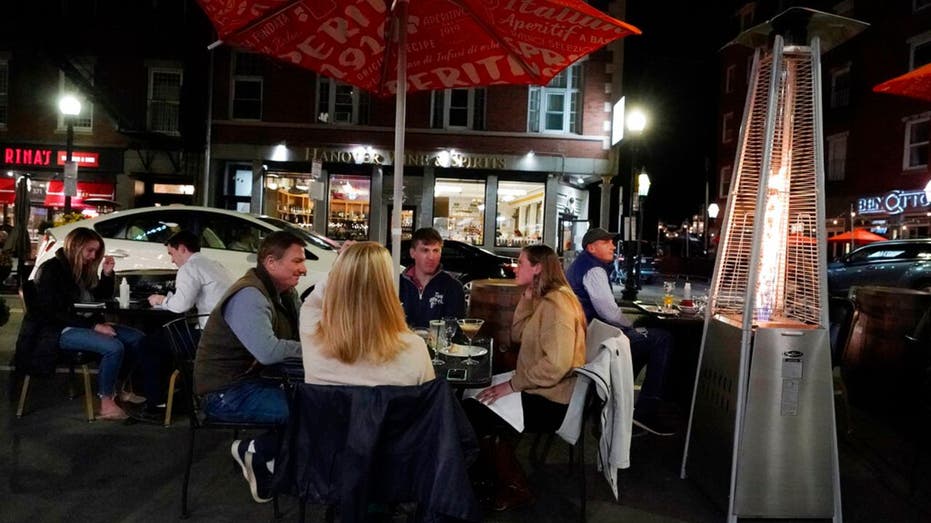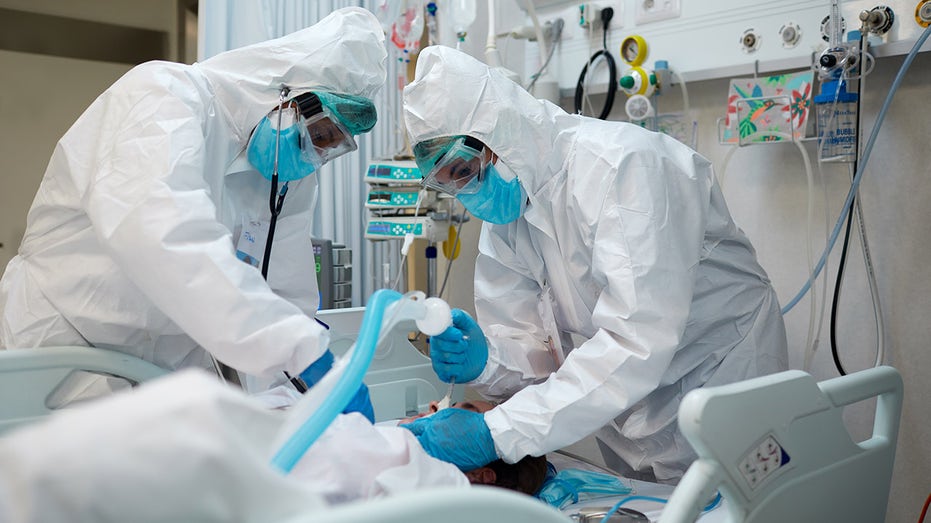Facing worst COVID-19 surge, US tries to avoid lockdowns
Unlike last spring, state, local officials use targeted measures in hopes of stemming rising infections and hospitalizations
The rebound of the pandemic is driving some cities and states to bring back restrictions on daily life, but with a lighter touch than before in hopes of minimizing the economic damage caused by sweeping lockdowns.
The new targeted actions range from prohibiting indoor service at bars and restaurants in Illinois to fining the hosts of disorderly, overcrowded indoor parties in Hoboken, N.J., and new statewide mandates in Massachusetts and Maine requiring people to wear face coverings in public, regardless of physical distance from others.
"In the spring we only had blunt instruments -- close all schools, close all restaurants, close everything. We don't need to do that now," Rhode Island's Democratic Gov. Gina Raimondo said when she issued a series of new two-week interventions this week, from limiting capacity at big box stores to asking people in an advisory to be home by 10 p.m. on weekdays and 10:30 on weekends.
Nearly every state in the U.S. is experiencing a resurgence of the virus as the nation this week logged its first day with more than 100,000 new cases. The seven-day average for new Covid-19 cases exceeded the 14-day average in 47 states Thursday -- an indication of acceleration, according to data from Johns Hopkins. An increase in hospitalizations and deaths has followed the rising numbers, and hospitals in the South and Midwest are showing signs of strain.

Diners have dinner outdoors, Friday, Nov. 6, 2020, in Boston's North End. (AP Photo/Elise Amendola)
CHIPOTLE FACES EMPLOYEE SHORTAGES AS COVID-19 CASES SPIKE
Public-policy makers, including Ms. Raimondo, aren't necessarily precluding moving to broader closures if the spread of the virus worsens, but they say they are trying smaller, targeted measures first to avoid those harsher steps.
"If we need to take further steps and move back into Phase Three or even going back to shelter in place, I'm not going to hesitate to do that," Chicago Mayor Lori Lightfoot, a Democrat, recently warned residents. "I hope that won't be necessary, but it is all in your hands."
After surges during the spring and summer, public-health officials cautioned that the pandemic could intensify again as temperatures fall, driving people indoors at a moment when pandemic fatigue is causing many to let their guard down. Hospitalizations in recent days hit their highest point in three months.
"These alarming numbers really suggest that we need to double down and really focus on a public-health response," said Dr. Thomas Tsai, an assistant professor at the Harvard T.H. Chan School of Public Health.
Public officials are able to take more focused steps because they know more about how the virus spreads, and hospitals are better equipped to prepare for surges and treat the disease, said Dr. Tsai. He said targeted steps to reduce interactions between people, such as curtailing dining hours or the number of people allowed at gatherings, can reduce spread. He noted, for instance, that research of mobility data from cellphones in the U.S. and Europe found a roughly 10% reduction in social mobility or movement translated to a similar decrease in the number of Covid cases.
"I think this is a moment where this large basket of smaller interventions can be effective and needs to be implemented in a lot of the hot-spot areas," he said.
On Friday, seven of the top 10 states with the most new cases in the past seven days were in the Midwest, according to the Centers for Disease Control and Prevention. Illinois ranked No. 1.

Pedestrians wear face masks as they pass a restaurant in downtown Evanston, Ill., Friday, Nov. 6, 2020. (AP Photo/Nam Y. Huh)
FULL-SERVICE RESTAURANTS COULD TAKE 5 YEARS TO RECOVER FROM THE PANDEMIC: REPORT
The rise prompted Illinois Gov. J.B. Pritzker and state health officials to start implementing mitigation measures on a regional basis a few weeks ago. As of this week, every region of the state is under heightened restrictions, including a ban on indoor service at bars and restaurants.
Mr. Pritzker, a Democrat, said if the state's Covid-19 case trajectory doesn't change, some areas will run out of hospital beds, nurses and doctors, and lead to statewide mitigations at a level that "nobody -- and I mean nobody -- wants."
He admonished county and city leaders who haven't been enforcing the reinstated restrictions.
"Far too many governments across the state are failing to enforce any mitigation measures, allowing this continued rise in positivity to balloon out of control," he told a news conference. "It's time to take some responsibility."
While governments in Europe and the U.K. have recently imposed widespread lockdown measures as coronavirus cases rise, the response in the U.S. is more patchwork. That stems from the fact that most public-health powers rest with the states under the Constitution, according to global health experts.
In El Paso, Texas, the seven-day average of Covid-19-related hospitalizations was 991 on Thursday, more than triple the previous high in late July. Emergency officials have set up a field hospital at the convention center. El Paso County Judge Ricardo Samaniego, the county's Democratic chief executive, said mortuaries are backing up. He has imposed a two-week stay-at-home order through Nov. 11. On Friday, a state court said the order could remain in place, rejecting a request from a group of restaurant operators and the state's Republican attorney general for a temporary injunction.
"We're about to go into crisis mode," Mr. Samaniego said. The attorney general's office said it would appeal.

Nearly every state in the U.S. is experiencing a resurgence of the virus as the nation this week logged its first day with more than 100,000 new cases. (iStock)
GET FOX BUSINESS ON THE GO BY CLICKING HERE
Wisconsin's leaders have been divided over how to respond to the pandemic, with the public-health orders and mandates issued by the administration of Democratic Gov. Tony Evers regularly being challenged by the Republican-controlled legislature and others.
The Wisconsin Supreme Court recently agreed to hear a lawsuit challenging the powers that Mr. Evers used when issuing a statewide mask mandate. That mandate was recently upheld by a circuit court judge.
In Iowa and Ohio, Republican governors said they are considering increased mitigations but were concerned about the consequences to the economy and residents, many of whom say they are only just recovering from the hardships caused during the first wave of the pandemic. The governors urged residents to do their part to slow the spread of the virus by wearing masks, washing their hands and adhering to social-distancing guidelines.
"This should scare you that you have this much spread in your hometown," Ohio Gov. Mike DeWine said. "A lot of this we can't micromanage and we can't control, but the public can, people can."
In Iowa, Gov. Kim Reynolds said that while her administration continues to weigh measures, she wants Iowans to double down on voluntary actions like wearing face masks and social distancing. She was planning to roll out a public-awareness campaign aimed at fostering a sense of civic mindedness.
"I've heard from business owners who are finally starting to make a comeback and have indicated they can't afford another shutdown, families who for the first time received assistance from the state or their local communities when they couldn't make ends meet because they lost their jobs, parents who are grateful to finally have their children back in school," she said. "These stories and those of countless others are why it is so important that every Iowan does their part to stop the spread of Covid-19."




















